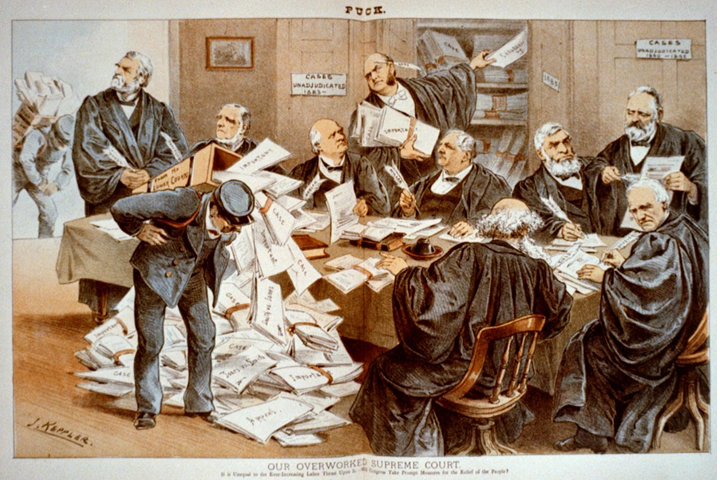What Does The U.S. Law Of Arbitration Actually Say?
The problem with some of the U.S. laws is that they don’t give clear explanations on what they are exactly. One of these is the U.S. law of arbitration stated in the Federal Arbitration Act (FAA) which is in dire need of updating. It is, in fact, the oldest arbitration statute. While the case law already revised many parts of its content, the gist of the statute is now found buried in federal decisional law. This makes it too vague for foreign-trained scholars and lawyers to understand and act upon.
Thankfully, the U.S. Supreme Court took the initiative in developing the international commercial arbitration (ICA) which turned out to be a significant reference in redeveloping the U.S. law of arbitration. It was able to distinguish international and domestic agreements during its initial process which broadened the scope of the former act. This accounts the international comity and global realities, as well as the ambit of arbitrability which includes ICA’s statutes relating to securities and antitrust disputes.

Basing on the precedents established in ICA, the Supreme Court was able to justify the creation of securities arbitration in domestic arbitration as well as the widening of subject-matter arbitrability in a domestic setting based on its being pro-arbitration and on a precedent that was based initially on the difference between domestic and international agreements. (see Rodriguez de Quijas v. Shearson/Am. Express, Inc., 490 U.S. 477 (1989) and Shearson/Am. Express, Inc. v. McMahon, 482 U.S. 220 (1987))
The following note will highlight three cases will demonstrate the importance of judge-made law in U.S. arbitration: Scherk v. Alberto-Culver Co., 417 U.S. 506, reh’g denied, 419 U.S. 885 (1974); Mitsubishi Motors Corp. v. Soler Chrysler-Playmouth, Inc., 473 U.S. 614 (1985) and The Bremen v. Zapata Off-Shore Co., 407 U.S. 1 (1972).
In his book Arbitration Law in a Nutshell, Professor Carbonneau mentioned this “trilogy” as one of the four pillars of U.S. arbitration. Among the four, this group is the “international one.” According to Professor Carbonneau, this case law establishes that: (1) arbitration is essential to the resolution of labor and management disputes; (2) the FAA is preemptive in contrary state laws on arbitration; (3) arbitrators has the authority to settle matters of arbitral procedure; and (4) these international arbitration cases “played a decisive role in crafting the general domestic doctrine on arbitration [and] […] [given] rise to another string of cases on subject-matter or statutory arbitrability.”

Case Analysis
In Scherk, all parties had agreed to arbitrate in Paris. Alberto-Culver suspected that Scherk’s breach violated the 1933 Securities Act and the 1934 Securities Exchange Act. Could arbitrators resolve this regulatory law issue? The court in Scherk held that:
A parochial refusal by the courts of one country to enforce an international arbitration agreement would not only frustrate these purposes, but would invite unseemly and mutually destructive jockeying by the parties to secure tactical litigation advantages.
[…]
For all these reasons, we hold that the agreement of the parties in this case to arbitrate any dispute arising out of their international commercial transaction is to be respected and enforced by the federal courts in accord with the explicit provisions of the [FAA].
With this verdict, the U.S. Supreme Court led the elaboration of the legal doctrine on ICA. In conclusion, the contracts for arbitration were essential to both global commerce and international contracting. The same ruling in favor of “international comity” also influenced the Court’s decision in Mitsubishi. There, the Court referenced Scherk with its approval and concluded that there was a virtually irrebuttable presumption favoring the enforcement of freely-negotiated transborder contracts. Its conclusion states that antitrust disputes that arise from national law were apparently arbitrable as a general matter, and with that, international arbitrators could rule on the application.
Furthermore, U.S. courts favor arbitration and arbitrability at the enforcement stage of the arbitral process as well. In The Bremen (involving the enforcement of a forum-selection-clause), the Court’s statement says that international commercial contracts involve special policy concerns and that the “[d]omestic strictures on judicial jurisdiction and the enforceability of contract provisions had to yield to the provisions in the parties’ bargain.” According to Professor Carbonneau analysis:
The Court emphasized new global commercial realities and asserted that legal doctrine should be made to respond to them in a nonsectarian fashion. In matters of transborder litigation, the function of domestic courts was not to create legal roadblocks to, or compete with, arbitration for jurisdictional supremacy.
[…]
The Bremen is the first case in which the Court established a marked boundary between law for domestic and international matters, holding that domestic rules could be unsuitable for application in the international sector and that these rules should be disregarded or modified when such a conflict emerged.
Professor Carbonneau explained that Scherk and Mitsubishi had established that a “special regime emerged for international business contracts ‘allowing international arbitrators’ to rule upon claims based upon U.S. regulatory law.” This turned the distinction between domestic and international arbitration vague in relation to arbitrability and “made universal subject-matter arbitrability an integral part of U.S. domestic law.” The Court takes responsibility in facilitating arbitration as well as protect and implement its “purposes.” Through this doctrine, the legal system of the United States had taken an effective and efficient pro-arbitration stance for business. Apparently, American courts may enforce international dispute resolution clauses for arbitrations that may not be enforced in a domestic setting. The U.S. Court had established a federal policy favoring international arbitration and commerce.
In both McMahon and Rodriguez de Quijas, the Supreme Court interpreted Mitsubishi and Scherk to support its reasoning in order to discredit the Wilko Doctrine (see Wilko v. Swan, 346 U.S. 427 (1953)). These two cases compelled lawmakers to create the “securities arbitration,” as what Professor Carbonneau calls it. He pointed out, however, that the Supreme Court failed to state that the international aspects in the above-mentioned trilogy were crucial for holdings such as these.
We just hope that the Court will be able to prioritize updating the old laws to cater the citizens’ modernized needs.
Photo Credit: Flickr

